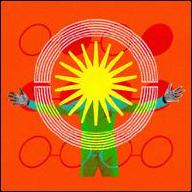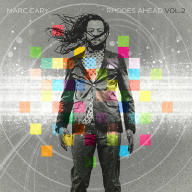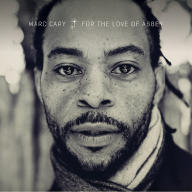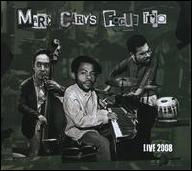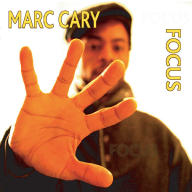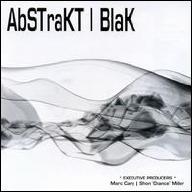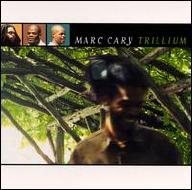Born in New York in 1967, Cary grew up in Washington, D.C., in a creative family with a percussionist father and cellist/painter mother. His grandfather also played trumpet with Cootie Williams (a first cousin) and his great-grandmother played piano for silent movies. In his youth, Cary studied cello, trumpet, and drums before discovering the local funk-based go-go music scene -- eventually dropping out of high school to pursue his interest. Cary's lifestyle quickly caught up with him, and at age 14 he entered a drug rehabilitation program. It was there that he met teacher Eleanor Oxendine, who took him under her wing and taught him how to read music. She also brought him into contact with teacher Daniel Witt, who taught him how to play piano and introduced him to jazz. Cary enrolled for study at the Duke Ellington School for the Arts and eventually earned his undergraduate and post-graduate degrees.
In the late '80s, Cary moved to New York City, where he found work with players like Beaver Harris and Mickey Bass. Tours followed with Arthur Taylor's Wailers and vocalist Betty Carter, whom Cary credits as a major influence on his career. He also joined trumpeter Roy Hargrove's band, appearing on albums like 1992's The Vibe and 1994's Approaching Standards. Also in 1994, he became vocalist Abbey Lincoln's pianist and arranger.
As a leader, he made his solo debut with 1995's Cary On, a sophisticated hard bop date featuring contributions by Hargrove as well as tenor saxophonist Ron Blake, bassist Dwayne Burno, and drummer Dion Parson. The equally compelling Listen followed two years later and again featured appearances by saxophonist Blake, as well as trumpeter Terrell Stafford. For 1998's The Antidote, Cary embraced a more adventurous Afro-Cuban vibe, working with Blake, percussionist Daniel Moreno, flutist/percussionist Yarbrough Charles Laws, and others. In 1999, he released the ambitious electro-acoustic album Rhodes Ahead, Vol. 1, featuring his group with bassist Taurus Mateen and flutist Laws. That same year, he released the trio date Trillium with bassist Mateen and drummer Nasheet Waits.
Cary also formed the cross-pollinated Indigenous People ensemble, bringing together African folk traditions, Brazilian and Caribbean grooves, and jazz, funk, and go-go rhythms. The group debuted in 1999 with the concert album Captured Live in Brazil. They returned in 2001 with Unite and followed two years later with N.G.G.R. Please. In 2006, Cary released Focus, a trio album with bassist David Ewell and drummer Sameer Gupta. Also that year, he collaborated with vocalist Shon Chance Miller on Abstrakt/Blak, playing Fender Rhodes and synths on a mix of jazz-, funk-, and M-Base-influenced material.
Over the years, Cary moved into teaching, holding positions at Juilliard and Manhattan School of Music. Still, performing has remained a vital focus of his career. In 2010, he released a live trio album, followed three years later by For the Love of Abbey, a solo piano tribute to Abbey Lincoln. The expansive Rhodes Ahead, Vol. 2 arrived in 2015 as a follow-up to his genre-bending 1999 album. Cary returned in 2021 with Life Lessons, which again found him exploring his love of the Fender Rhodes organ, ambient electronica, and synthesizers. ~ Matt Collar, Rovi


